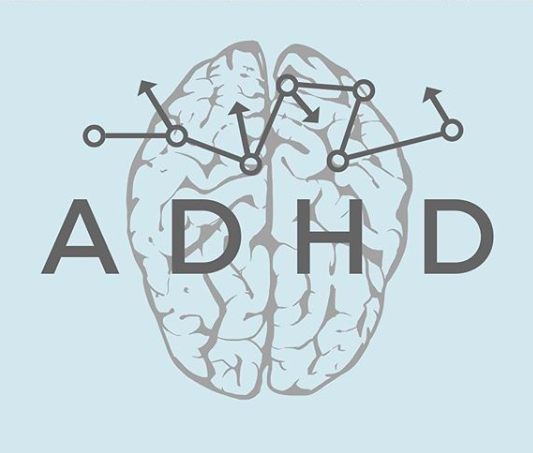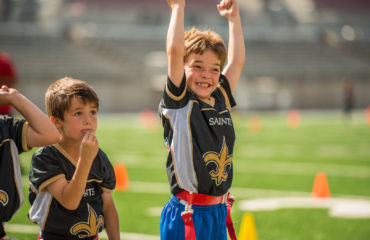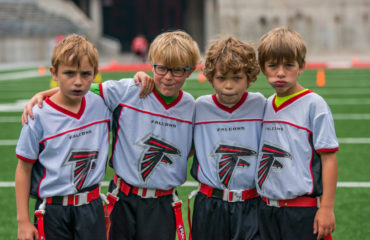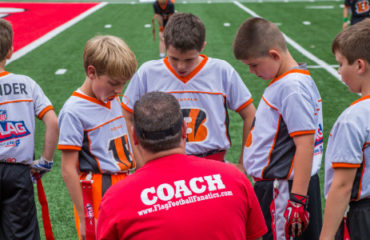Children, Sports, and the Brain: Part 1
Welcome to “Part 1” of a three-part series that focuses on your child, sports, and the brain. Odd combo, eh, the brain? You are probably thinking that this article is about concussions, but this three-part series will go beyond concussions to focus on the positive impacts that youth sports have on common, but not always thought about, aspects of the brain. This is meant to be informative and helpful in understanding the importance of children playing sports and the development of the brain. This blog features professional opinions from Kerry Monahan, an Ohio licensed clinical psychologist with specialization in pediatric neuropsychology.
Attention Deficit/Hyperactivity Disorder, or commonly referred to as ADHD, is considered one of the most common mental disorders. According to Centers of Disease Control and Prevention, 1 in 10 children ages two to seventeen are diagnosed with ADHD. Chances are you have encountered children with this mental disorder, but could you notice?
“Children with ADHD may have difficulties with paying attention and focus, following multi-step directions, and internal motivation, and they may also be more likely to act before they think through consequences,” Dr. Kerry Monahan says. “Although these difficulties may introduce some unique challenges in the sports environment, there are many of positives to sports participation.”
Every person is different. Environments that may suit one person well, may not fit another. But, sports are a very easy way to provide a different kind of environment that can likely be suitable for children with ADHD. Getting your child participating in a sport they like is a win-win: fun and impactful.
Monahan continues, “Children in general benefit from structure and routine, and this can be particularly important with ADHD. Playing a sport is a structured extracurricular activity that can also be a way to expend energy and engage with peers.”
A structured sport provides children with a fun way to learn rules and expectations. Flag football does just that through required rules, routine practices, and designed game plays. The foundation of this sport is designed with structure but built around fun.
Another benefit, says Monahan, is that “Organized sports may provide an environment to help develop teamwork skills, develop friendships with peers with similar interests, and also provide a venue where a child may be able to build confidence in an area outside of school.” These are social skills and personal qualities that are important in the development of your child as their brain develops. Flag football provides an excellent source of team building and bonding activities through practices and games, team social activities, and the post-game hangouts. It provides your child with a sense of belongingness through the team, motivating them by holding an important role in the team, thus allowing for the development of confidence along the way.
“Children with ADHD are more likely to experience anxiety and depression, as well as social difficulties. Exercise in general has positive effects against stress, anxiety, and depression. Research has also specifically found that active sports participation may be linked with decreased likelihood of depression and anxiety symptoms in children with ADHD” (Kiluk, Weden & Culotta, 2008).
Physical exercise is good for the brain!



